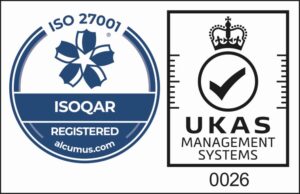IT MSPs and Multi-Cloud Management: Optimizing Efficiency and Cost-Effectiveness
As businesses increasingly adopt cloud computing, multi-cloud environments have become the new norm. A multi-cloud strategy involves using multiple cloud service providers to host different applications, workloads, and services. While multi-cloud offers flexibility and resilience, it also presents challenges in terms of management, integration, and cost optimization. This is where IT Managed Service Providers (MSPs) play a critical role. MSPs specialize in multi-cloud management, helping businesses navigate the complexities of multi-cloud environments and achieve optimal efficiency and cost-effectiveness. Let’s explore the role of IT MSPs in multi-cloud management and how they assist businesses in reaping the benefits of a multi-cloud strategy:
Comprehensive Cloud Strategy
MSPs work with businesses to develop a comprehensive multi-cloud strategy aligned with their unique requirements and objectives. They help businesses choose the right combination of public, private, and hybrid clouds based on workload suitability, compliance needs, and cost considerations.
Vendor Selection and Contract Negotiation
MSPs assist businesses in selecting cloud service providers that best meet their specific needs. They negotiate contracts on behalf of businesses to ensure favorable terms, pricing, and service level agreements (SLAs).
Cloud Resource Optimization
MSPs optimize cloud resource allocation and utilization to avoid unnecessary expenses. They continuously monitor cloud usage, identify idle resources, and recommend right-sizing to match computing needs with actual demand.
Integration and Interoperability
MSPs ensure seamless integration between different cloud platforms and existing on-premises infrastructure. They address challenges related to data migration, application portability, and identity management across multi-cloud environments.
Data Security and Compliance
MSPs implement robust security measures and compliance controls across all cloud platforms to safeguard sensitive data and meet industry-specific regulatory requirements.
Performance Monitoring and Management
MSPs proactively monitor the performance of applications and services across various clouds. They detect and address performance bottlenecks, ensuring optimal performance and user experience.
Disaster Recovery and Business Continuity
MSPs design and implement multi-cloud disaster recovery strategies to ensure data redundancy and rapid recovery in case of a cloud outage or data loss.
Cost Visibility and Control
MSPs provide businesses with detailed insights into cloud spend and usage. They help businesses optimize cloud costs by implementing cost management strategies and recommending cost-effective cloud services.
Automation and Orchestration
MSPs leverage automation and orchestration tools to streamline cloud management tasks, reduce manual intervention, and enhance efficiency in managing multi-cloud environments.
24/7 Support and Incident Management
MSPs offer round-the-clock support and incident management to ensure quick resolution of cloud-related issues and minimize downtime.
By partnering with IT MSPs for multi-cloud management, businesses can unlock the full potential of their multi-cloud strategy. MSPs bring specialized expertise in cloud technologies, best practices, and cost optimization, enabling businesses to achieve the scalability, flexibility, and cost-efficiency offered by multi-cloud environments. With MSPs’ support, businesses can navigate the complexities of multi-cloud management with confidence and focus on leveraging the full power of cloud computing to drive innovation and growth.




